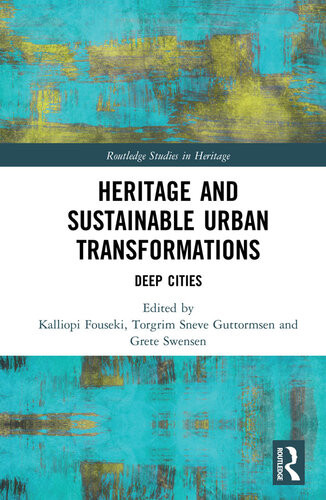

Most ebook files are in PDF format, so you can easily read them using various software such as Foxit Reader or directly on the Google Chrome browser.
Some ebook files are released by publishers in other formats such as .awz, .mobi, .epub, .fb2, etc. You may need to install specific software to read these formats on mobile/PC, such as Calibre.
Please read the tutorial at this link: https://ebookbell.com/faq
We offer FREE conversion to the popular formats you request; however, this may take some time. Therefore, right after payment, please email us, and we will try to provide the service as quickly as possible.
For some exceptional file formats or broken links (if any), please refrain from opening any disputes. Instead, email us first, and we will try to assist within a maximum of 6 hours.
EbookBell Team

0.0
0 reviewsHeritage and Sustainable Urban Transformations introduces the concept of ‘deep cities’, a novel approach to the understanding and management of sustainable historic cities that will advance knowledge about how the long-term, temporal and transformative character of urban heritage can be better integrated into urban policies for sustainable futures. Contrary to the growing emphasis on green or smart cities, which focus only on the present and future, the concept of ‘deep cities’ offers an approach that combines an in-depth understanding of the past with the present and future.
Bringing together chapters that cover theoretical, methodological and management issues related to ‘deep cities’, the volume argues that using this approach will force researchers, managers and consultants to actively use the heritage and history of a city in the planning and management of sustainable cities. Exploring different definitions of ‘deep cities’, the book reveals varying and sometimes conflicting views among stakeholders concerning how, where and when the depth of a city should be conceptualized. Despite this, the book demonstrates how this new approach can help to create robust cities for the future, as new and innovative solutions are combined with the preservation and strengthening of historical features.
Heritage and Sustainable Urban Transformations is the first international collection on the subject of sustainable historic cities. As such, the book will be of great interest to academics and students engaged in the study of heritage, heritage management, architecture, heritage conservation, anthropology, development studies, geography, planning and archaeology.